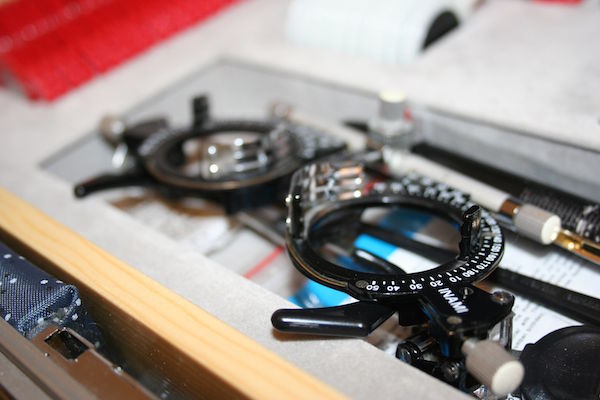
MONDAY, Oct. 1 (HealthDay News) — Sharing doctors’ notes with patients may be good medicine, a new study suggests.
Patients allowed to read their physicians’ notes after office visits tend to feel more involved in their own care, gain a better understanding of their medical issues and become more compliant with their treatment plan, according to the research.
For the study, published Oct. 2 in the Annals of Internal Medicine, 105 doctors at three U.S. institutions invited thousands of patients to access the doctors’ notes online using secure Internet portals. The year-long project was called OpenNotes.
“The study is very important because it shows [OpenNotes] did not create a significant burden for doctors, and it helps patients to understand better the diagnosis and the advice of the doctor,” said Rita Marker, executive director of the Patients Rights Council, which addresses advance directives, pain control, euthanasia and other issues.
“They feel empowered,” added Marker, who was not involved in the study.
More than 85 percent of the nearly 14,000 patients who had notes available to them opened them, and many accessed the notes often, the researchers said. After a year, the researchers evaluated the effects and reactions of both doctors and patients.
“Different patients get different things from reading the notes,” said Jan Walker, principal associate in medicine at Harvard Medical School. She and Dr. Tom Delbanco, a professor of medicine at Harvard, were the principal investigators for the project.
Some patients said reading the notes spurred them to make changes, such as losing weight, that doctors had suggested for years, the researchers found.
Many said opening the notes helped them feel more in control of their care. Those taking medications said the notes helped them take the drugs as directed.
However, between 1 percent and 8 percent said the notes caused them worry, confusion or offense. More than one-quarter had privacy concerns.
But up to 42 percent shared the notes with others, such as spouses or family members.
Some doctors had worried that the project would take too much time or result in longer visits. But that wasn’t the reality, they reported.
When the project concluded and the doctors were told they could turn off the electronic note access, “Not a single doctor turned it off,” Walker said.
Meanwhile, nearly all of the patients — 99 percent — said they wanted to continue seeing their physicians’ notes, Walker added.
“Patients said things like, ‘Seeing something in writing brings it home to me,'” Walker said.
For example, seeing the term “obese” in her file led one patient to join Weight Watchers, begin exercising and vow to slim down.
In a journal editorial accompanying the study, Michael Meltsner, a patient in the study, said he had never thought about the option of seeing notes.
Now, “I would find it hard to go to a primary care provider who didn’t share his or her notes,” he said.
Meltsner, a professor at Northeastern University School of Law in Boston, recalled the treatment given his terminally ill father, who was told little to nothing about his condition. “Not only does OpenNotes tend to level the playing field, it makes patients joint venturers in treatment, prevention and compliance with instructions,” he said.
Reviewing your doctor’s notes helps a patient become an active participant, says Meltsner. “Passivity robs patients of a wide range of steps that they, and only they, can take toward improved well-being,” he wrote.
More information
The U.S. National Library of Medicine has more about patient rights.

